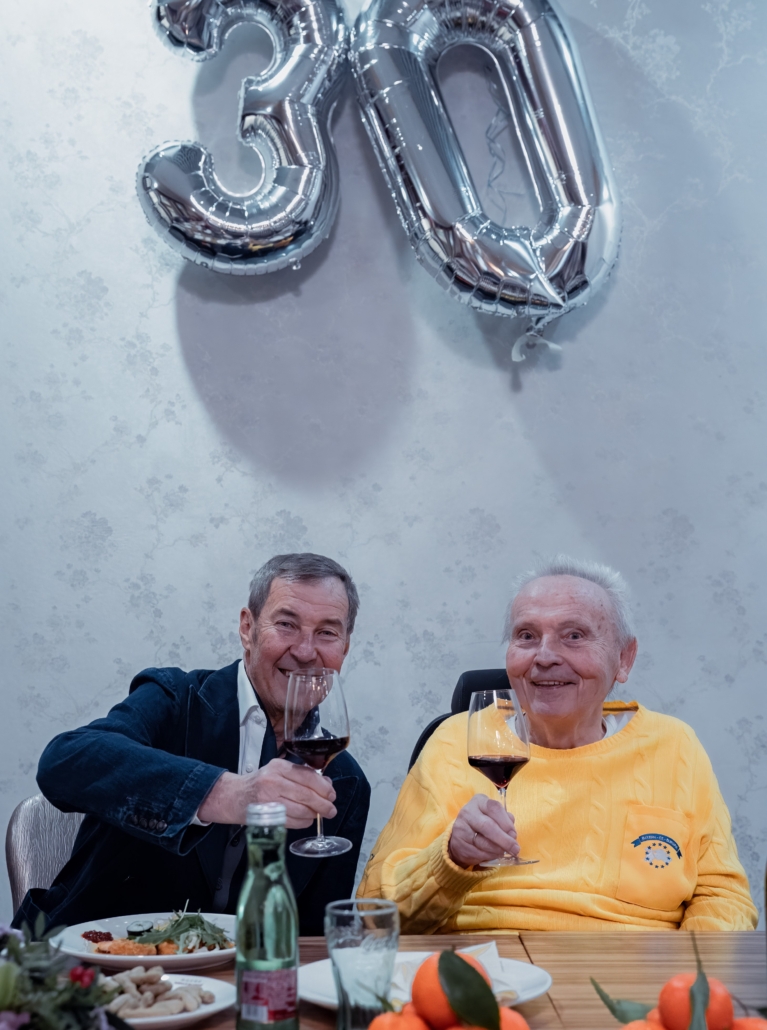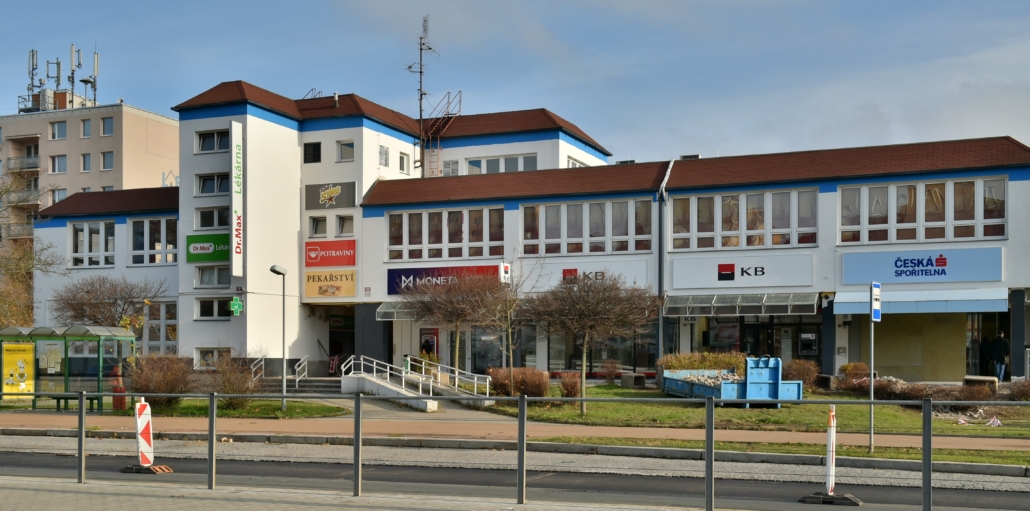We learnt as we went along…
The development company InterCora built the first shopping centre in Plzeň 30 years ago – and thus changed the culture of shopping. By now, they have been through more than 300 retail buildings and are building more.
 We talked about the early days of their business and visions with the founders of the company, Ivan Hlaváček (IH) and Dr. by Günther Zembsch (GZ).
We talked about the early days of their business and visions with the founders of the company, Ivan Hlaváček (IH) and Dr. by Günther Zembsch (GZ).
InterCora celebrates its 30th anniversary this year. Do you remember how it all started?
IH: I can see it like it was yesterday. When my friend and business partner Dr. Günther Zembsch and I founded the company in 1993, it was a beautiful winter day and the euphoria of the newly acquired freedom was still in the air.
How did you meet?
IH: I emigrated to Germany in 1981, we met in Bavaria, where I spent a part of my life and to this day, I like going back there. Günther and I started shaping the business vision even before the fall of the regime. The beginnings were not easy, because we were true pioneers in the market. We built the very first shopping centre in Pilsen – NC EDEKA in Lochotín.
What challenges did you encounter?
IH: We were learning on the fly. I remember the opening of our first shopping centre. We laid beautiful ceramic floor tiles there and they were duly proud of it. When the then director of EDEKA came to take it over, he took a metal mark from his pocket, rolled it on the floor, and the coin bounced up and down, hither and thither. He said that we had to replace the flooring, that it had to be smooth so that the shopping trolleys would go well on it. So, we fixed it. We grew with every completed project. We started as a small office with two employees. Today, we have 75 colleagues, specialized departments and we are a retail market leader in the Czech Republic and Slovakia.
 How do you look back on the 90s? What were the main impulses for your growth?
How do you look back on the 90s? What were the main impulses for your growth?
IH: Those times and the first years of the new millennium were, in a way, a unique period that created ideal conditions for making all enterprising citizens’ dreams come true. During the transition to a market economy, the company wanted to catch up with the trends common in Western Europe, one of the symbols of which were supermarkets, where consumer goods were available all year round. A great number of state-owned enterprises, such as breweries, sugar factories or bus operators, ended or gradually declined with the era of socialism. Apart from standard projects, InterCora also focused on these brownfields, bestowing them with a new face. At that time, cities supported the sale of land and the development of services for citizens in every way and, together with the state, built the necessary infrastructure.
GZ: We also divided our roles then. While Ivan was in charge of project coordination and the running of the company, I concentrated on project finance by credit banks. It was a period of very rapid expansion, with the retail market developing and becoming saturated simultaneously. The times of almost unlimited possibilities are gone, but we still want to grow steadily.
You have over 300 objects on your account. What project are you most proud of?
GZ: What we consider a great success is the hybrid shopping centre in Banská Bystrica. For many years, we have been providing mezzanine loans based on the principle that if our creditor encounters problems with the realization of the financed object that he cannot solve by himself, we will take the object over and complete it ourselves. More than five years ago, we received, through an Austrian bank, a request from a Viennese developer for a mezzanine loan in the range of EUR 5 to 10 million. After reviewing the submitted documents, we decided to provide the mezzanine loan. Together with the financing bank, we reviewed the documents and found out that many of them were falsified, for example real estate cadastre documents, property ownership documents, etc. The project was very complex. It includes a central bus station, which is connected to the main station of the railway network of the Slovak Republic. The shopping centre is designed as a hybrid object, part as a shopping centre and part as a shopping gallery. It was not possible to foresee that the general contractor would become insolvent after about half of the construction volume was completed, so we had to reorganise and coordinate his subcontractors. It was only after the opening of the terminal bus station and shopping centre that we learnt that all our predecessors who had tried to implement the project had failed. This hybrid shopping centre, as well as the bus station, has been in operation for almost five years and represents our flagship in Slovakia.
Which shopping centre did you complete last and how does it differ from the first one opened 30 years ago?
 IH: The needs and demands of customers have changed in the recent years and this has also been reflected in our shopping centres. Today’s shopping must be primarily an experience associated with, for instance, spending time in a cafe or restaurant. That is why relaxation zones and food courts come as a matter of course. We also try to support sustainable development, so we install photovoltaic panels on selected properties and allow customers to charge their electric cars in car parks. We are certainly not indifferent to the topic of the environment.
IH: The needs and demands of customers have changed in the recent years and this has also been reflected in our shopping centres. Today’s shopping must be primarily an experience associated with, for instance, spending time in a cafe or restaurant. That is why relaxation zones and food courts come as a matter of course. We also try to support sustainable development, so we install photovoltaic panels on selected properties and allow customers to charge their electric cars in car parks. We are certainly not indifferent to the topic of the environment.
What are you planning this year? And what do you wish InterCora on its birthday?
GZ: We have two big events coming up this year. In cooperation with the city of Pilsen, we are completely revitalizing one of our older shopping centres in the Pilsen housing estate of Skvrňany. It is a technically demanding project associated with the demolition of the existing Penny Market store and other premises and the construction of a completely new shopping centre, next to which the city will build a park in the future. In Slovakia, we are planning to build a retail centre within the wider centre of Košice. On top of that, we are continuously developing several development projects that are still in the planning or permitting phase. So, there is still plenty of work.
IH: On my and Dr Zembsche’s behalf, I would like to wish InterCora to continue to have enough projects and that work would bring joy and fulfilment to us and our colleagues.

default




Leave a Reply
Want to join the discussion?Feel free to contribute!